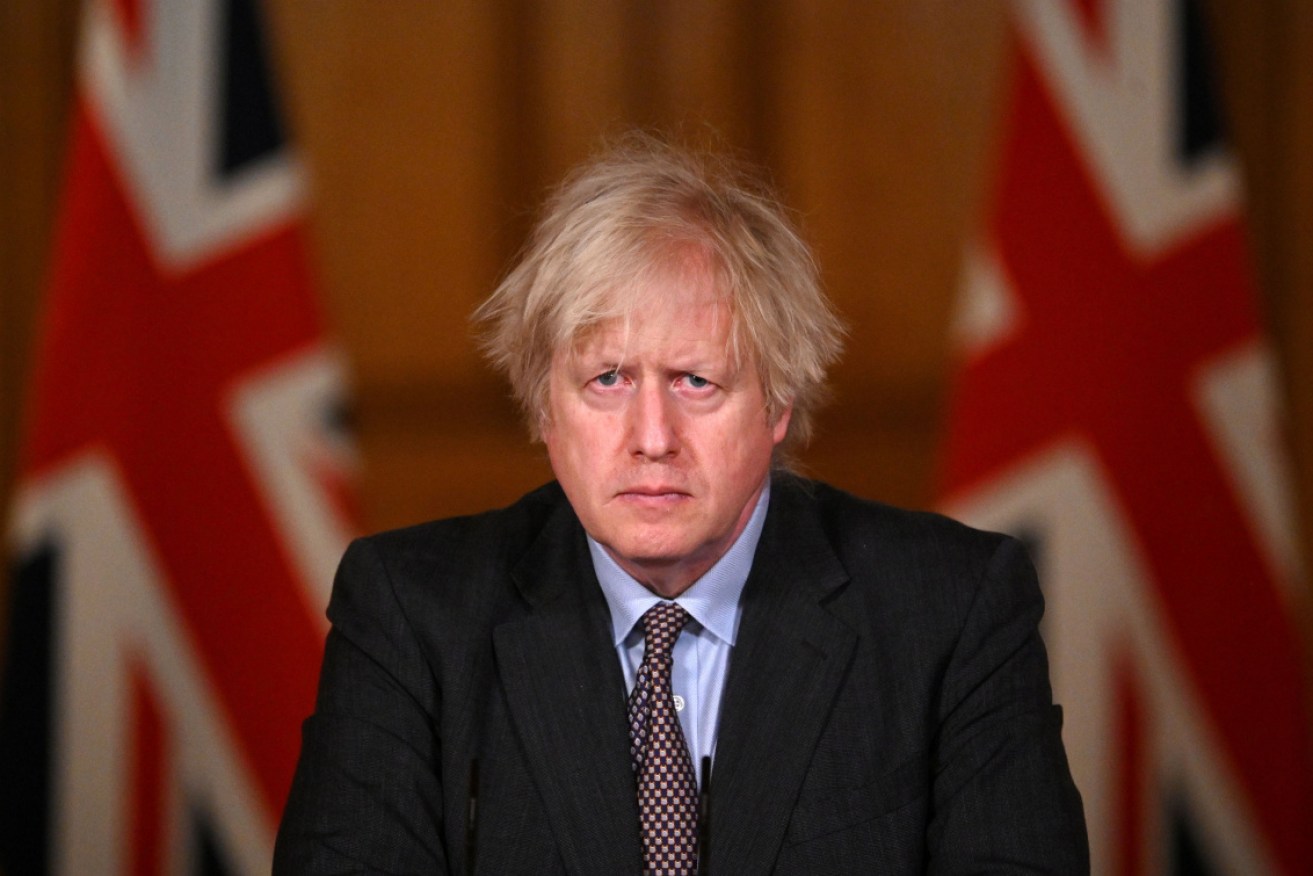‘Road to freedom’: Johnson unveils path out of virus lockdown


Mr Johnson said England's path out of lockdown would be "driven by data". Photo: Getty
Prime Minister Boris Johnson has set out a phased plan to end England’s COVID-19 lockdown, offering a “cautious” approach to try to prevent a return to wholesale restrictions that have hobbled the economy.
Mr Johnson, who has been under pressure to allow more freedoms for millions stuck at home and offer hope to shuttered businesses, said the first stage would prioritise schools returning on March 8.
Under the plan, only minimal socialising outdoors will be allowed.
The so-called road map will then pass through four stages, with five weeks in between each. The final step – when most restrictions will be lifted – will not start until at least June 21.
“There is therefore no credible route to a zero-COVID Britain or a zero-COVID world. And we cannot persist indefinitely with restrictions that debilitate our economy, our physical and mental well-being and the life chances of our children,” Mr Johnson told parliament on Tuesday (Australian time).
“That is why it is so crucial that this road map is cautious but also irreversible. We’re setting out on, what I hope and believe, is a one-way road to freedom.”
With almost 130,000 fatalities, the UK has suffered the world’s fifth-highest official death toll from the pandemic and its economy has seen its biggest slump in about 300 years.
“The level of infection is broadly similar across England, so we will ease restrictions in all areas at the same time,” Mr Johnson said.
“The sequence will be driven by the evidence, so outdoor activity will be prioritised while minimising the risk.
“At every stage, our decisions will be led by data, not dates.”
With one of the strictest lockdowns and one of the world’s fastest vaccine roll-outs, the country may be seen as a test case for governments hoping to reopen economies and return life to some kind of normalcy.
Even with encouraging data after more than two months of domestic vaccinations released on Monday, the British government’s cautious approach highlights how slow a process it will likely be for many countries.
Mr Johnson said the fast start to the vaccine rollout plus a sharp fall in infections allowed him to set out a cautious easing of England’s tough lockdown, which started on January 5.
As the plan unfolds, MPs will have a chance to vote on specific steps.
Authorities in Scotland, Wales and Northern Ireland, which are responsible for their own public health, will also ease restrictions in coming months.
The reopening of schools is expected to help the economy, freeing parents who have had to juggle work and home schooling.
However, any easing of social mixing will initially be limited and the government will ask people to work from home, where they can, for some weeks until it has completed a review into social distancing at some point before June 21.
At the end of March, it is envisaged a handful of people will be able to mix outdoors but non-essential shops and outdoor hospitality will not reopen until April 12 at the earliest.
Most social contact rules will remain for the outdoors until at least May 17, with legal limits on social contact remaining until at least June 21.
Mr Johnson, who was treated in intensive care for COVID-19 in 2020, faces pressure from politicians in his Conservative Party to restart the economy but also from scientific advisers who fear a resurgence of the virus if he unlocks too quickly.
He has appeared more cautious in recent months than earlier in the pandemic, when he was widely criticised for his eagerness to reopen shops, restaurants, pubs and offices.
“We are in a not very good position, which is getting better,” the government’s top science adviser Patrick Vallance said.
“The message that comes out of all of the modelling is … get [infection] numbers down before you start releasing, go slowly, [and] go in blocks that you can measure the effect of after four or five weeks.”
-with AAP








